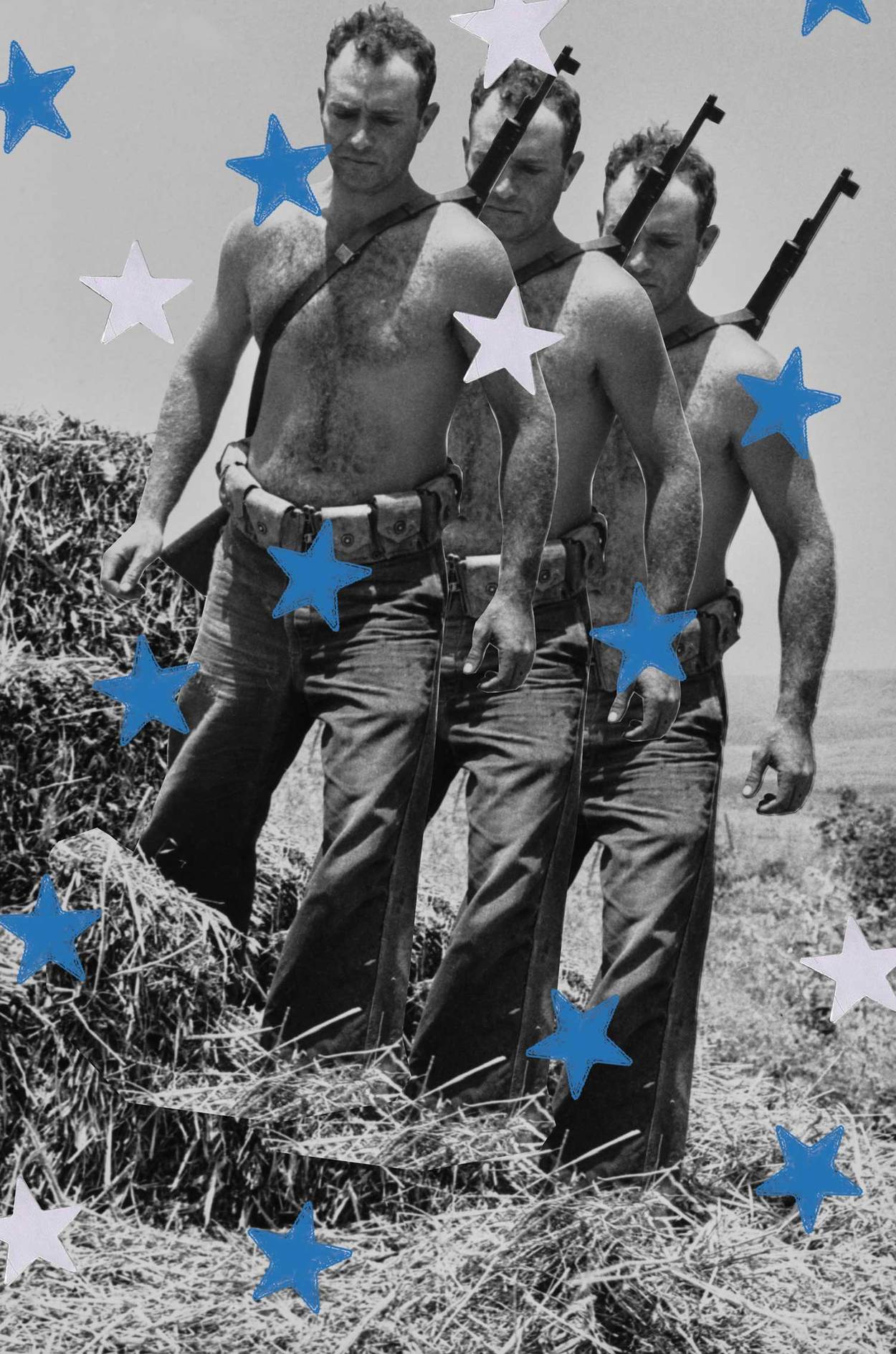 Kto jest winien fali nienawiści do Żydów, która zalewa kanadyjskie miejsca pracy, uniwersytety, związki zawodowe, wpisy w mediach społecznościowych, a nawet nasze ulice i dzielnice? Kim są zwolennicy antysemityzmu? Na zdjęciu: Policja bada miejsce, z którego została ostrzelana żydowska szkoła w listopadzie 2023r. (Zrzut z ekranu wideo)
Kto jest winien fali nienawiści do Żydów, która zalewa kanadyjskie miejsca pracy, uniwersytety, związki zawodowe, wpisy w mediach społecznościowych, a nawet nasze ulice i dzielnice? Kim są zwolennicy antysemityzmu? Na zdjęciu: Policja bada miejsce, z którego została ostrzelana żydowska szkoła w listopadzie 2023r. (Zrzut z ekranu wideo)
 Jest wielu winnych wzrostu antysemityzmu, w tym media
Jest wielu winnych wzrostu antysemityzmu, w tym media
Howard Levitt
Tłumaczenie: Małgorzata Koraszewska
W ciągu ostatnich kilku lat kanadyjscy pracodawcy coraz częściej zatrudniali trenerów „różnorodności, równości i włączenia” (DEI), aby uwolnić swoich pracowników od świadomego, a nawet podświadomego rasizmu. Na pierwszy rzut oka, kto może sprzeciwić się różnorodności, równości i włączeniu? To jakby sprzeciwić się Świętemu Mikołajowi.
Niestety, warsztaty te zbyt często były przejmowane przez radykalnych ideologów, którzy w efekcie podżegali do konfliktów rasowych. Nieszczęśliwa historia Richarda Bilkszto, który popełnił samobójstwo po tym, jak jeden z takich szkoleniowców uznał go za rasistę, ponieważ powiedział, że Kanadyjczycy nie są bardziej rasistowscy niż Amerykanie, była tylko nagłośnioną sprawą będącą czubkiem góry lodowej.
Wielu moich żydowskich klientów, jeszcze przed 7 października skarżyło się na sposób, w jaki traktowano Żydów na seminariach DEI. W jakim stopniu to radykalne szkolenie odegrało rolę w nagłym wybuchu antysemityzmu w Kanadzie?
Kto tak naprawdę jest winien fali nienawiści do Żydów, która zalewa kanadyjskie miejsca pracy, uniwersytety, związki zawodowe, media społecznościowe, a nawet nasze ulice i dzielnice?
Antysemityzm ma w Kanadzie długą, paskudną historię i dla niektórych (jak na ironię wielu z tych, którzy nigdy świadomie nie spotkali Żyda) zawsze był ukryty tuż pod powierzchnią. Przez pewien czas było pewne wytłumienie antysemityzmu z powodu poczucia winy wywołanego okrucieństwami II wojny światowej. Ale znów rośnie w siłę i, co zaskakujące, jego zwolennicy są z tego dumni.
Kim są propagatorzy antysemityzmu?
Oczywiście, na pierwszym miejscu są radykalni islamiści, którzy importują starodawną, historyczną nienawiść do Żydów w oparciu o Koran. Ich nienawiść do chrześcijan i innych „niewiernych” jest tylko nieznacznie mniejsza.
Dalej jest radykalna lewica, która od czasu, kiedy słaby Izrael pokonał połączone armie Jordanii, Egiptu i Syrii w 1967 roku, postrzega Izrael jako ciemiężyciela. Wierzę, że dużą część antysemityzmu w ruchu związkowym w sektorze publicznym można przypisać temu nurtowi.
Jest też wpływ DEI, który zbyt często umieszcza Żydów na szczycie hierarchii rasowej, ignorując fakt, że Żydzi zawsze byli i pozostają dramatycznie bardziej dyskryminowani niż jakakolwiek inna grupa, łącznie z grupami znajdującymi się na rzekomym dole hierarchii intersekcjonalności ruchu DEI: rdzenna ludność, czarni, muzułmanie i LGBTQIA+.
Z tymi siłami sprzymierzone są uniwersytety i uczelnie, które od lat są świątyniami „przebudzenia” i karzą studentów wyrażających niezgodę z ich lewicowymi oświadczeniami. Podczas gdy kampusy są wylęgarniami poparcia dla Hamasu, sondaże wykazały, że młodzi ludzie, którzy nie byli w szponach profesorów naszych uniwersytetów i szkół wyższych, w zdecydowanej większości popierają Izrael, podobnie jak większość innych grup w Kanadzie.
Choć wymieniam je tu osobno i je rozróżniam, lewica, uniwersytety i praktycy DEI są w pewnym stopniu wymienni i mają wielu tych samych członków.
Ostatnią grupą, która moim zdaniem jest odpowiedzialna za wzrost antysemityzmu, są dziennikarze i ich nieodpowiedzialne publikacje w mediach.
Kanadyjski nadawca publiczny, CBC, był szczególnie jednostronny i nieubłagany w swoich relacjach z konfliktu między Izraelem a Hamasem. Nadal nie opisuje Hamasu jako organizacji terrorystycznej i jeszcze nie przeprosił za fałszywe oskarżenie Izraela o zbombardowanie szpitala i zabicie setek osób – mimo że od dawna przyznano, że winę ponosi wadliwie wystrzelona rakieta Palestyńskiego Islamskiego Dżihadu i że liczba ofiar śmiertelnych była dużo niższa. (Rakieta spadła na parking szpitala i zabiła kilkanaście osób.)
CBC konsekwentnie przedstawiał pogląd na wojnę wypaczony na korzyść Hamasu.
W niedawnym artykule w gazecie „Toronto Sun” Warren Kinsella ujawnił, że w CBC powołano komitet, który ma bezpośrednio nadzorować programy na temat Izraela. Poinformował również, że tamtejsi żydowscy dziennikarze twierdzą, że programy i artykuły, które proponują na temat wojny, są rutynowo ignorowane.
CBC jest najgorszy, ale nie samotny. Montrealska gazeta „La Presse” zamieściła upiorną karykaturę przedstawiającą izraelskiego premiera Benjamina Netanjahu jako odrażającego wampira z haczykowatym nosem i ostrymi pazurami, gotowego wyssać życie z Palestyńczyków, nazywając go „Nosfenjahu” w nawiązaniu do niemieckiego niemego horroru z 1922 roku Nosferatu, który od dawna był postrzegany jako głęboko antysemicki. „Toronto Star” także publikowała artykuły przedstawiające zdecydowanie antyizraelskie stanowisko.
Zakończę niepokojącą, ale nie zaskakującą historią naszego nadawcy publicznego. To mówi wszystko.
Na początku wojny CBC poszukiwał „głęboko osobistych esejów” na temat tego, co dzisiaj znaczy być Żydem i Kanadyjczykiem, i zapraszał Kanadyjczyków pochodzenia żydowskiego do przedstawiania swoich historii.
Shawna Cohen z Toronto przesłała artykuł. Producent z CBC odpowiedział:
„W szczególności chciałbym usłyszeć opinię kogoś, kto chce zawieszenia broni/ma trudności w byciu proizraelskim w tej chwili LUB kogoś, kto wspiera wojnę mimo wysokich strat życia cywilów – i jak ich osobiste doświadczenia wpływają na te poglądy. Daj mi znać, jeśli chciałabyś napisać coś w tym stylu, a jeśli tak, jak byś to ujęła”.
Pani Cohen odpisała:
„Jako Żydówka czuję się zobowiązana poinformować, że specyficzny punkt widzenia, którego szuka CBC, jest niebezpieczny i ograniczony. Społeczność żydowska czuje się wyjątkowo zagrożona – w Kanadzie i poza nią.
Zamiast dać autorom możliwość podzielenia się tym, jak i dlaczego Żydzi czują się w ten sposób, CBC dokonał inżynierii wstecznej narracji. W szczególności poszukuje rzadkiego gatunku Żydów, którzy nie popierają Izraela i/lub są skłonni negocjować z organizacją terrorystyczną. Przyjmowanie takiego podejścia przyczynia się jedynie do propagandy antyizraelskiej.
Szczerze mówiąc, wahałam się przed przesłaniem mojego artykułu CBC ze względu na ugruntowaną historię antyizraelskich i antysyjonistycznych uprzedzeń tej redakcji. Z Twojej odpowiedzi jasno wynika, że CBC nie przyjmuje prawdziwych opinii ani perspektyw, które nie są postrzegane przez pryzmat własnego wąskiego, socjopolitycznego punktu widzenia. Taka rzeczywistość jest nie do przyjęcia dla nadawcy finansowanego ze środków publicznych, który uważa się za głos narodu”.
Nigdy nie otrzymała odpowiedzi.
Mamy nadzieję, że nasz nadawca publiczny wkrótce zostanie pozbawiony środków publicznych. Stał się hańbą narodową.
Howard Levitt – kanadyjski prawnik, przewodniczący Stowarzyszenia Prawników w Ontario.
Zawartość publikowanych artykułów i materiałów nie reprezentuje poglądów ani opinii Reunion’68,
ani też webmastera Blogu Reunion’68, chyba ze jest to wyraźnie zaznaczone.
Twoje uwagi, linki, własne artykuły lub wiadomości prześlij na adres:
webmaster@reunion68.com



